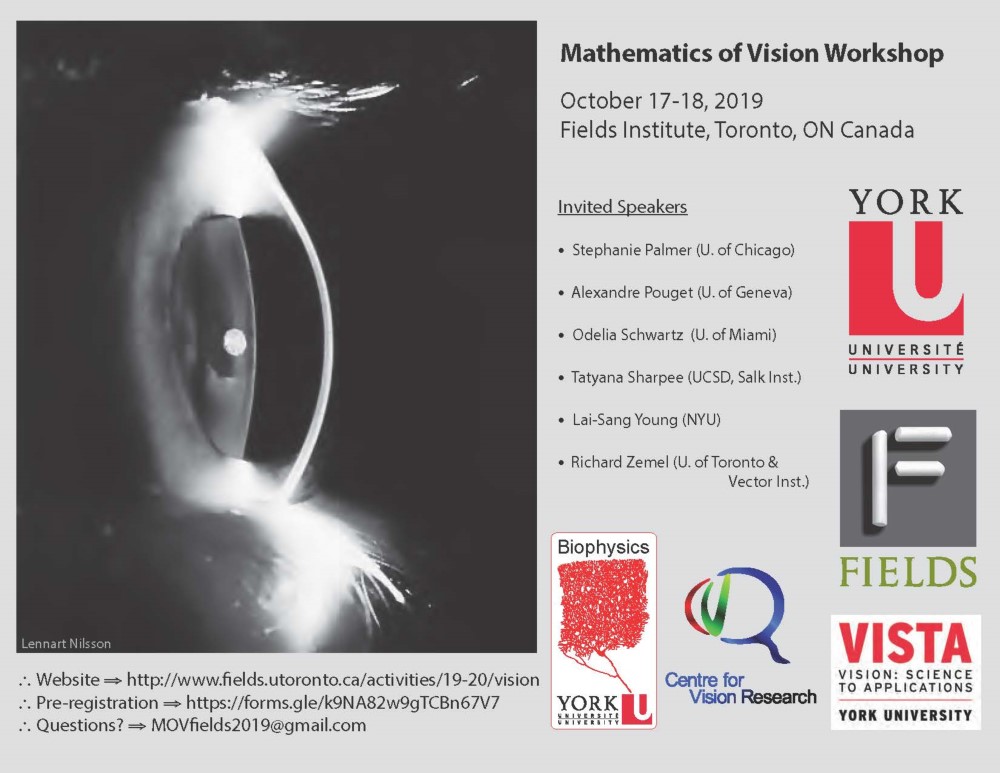222 College St
Toronto
ON M5T 3J1
Organised by VISTA members: Chris Bergevin, Joel Zylberberg, Rick Wildes, James Elder, Richard Murray & Patrick Cavanagh
In many ways, “vision science” can serve as a fruitful proxy for research in neuroscience and artificial intelligence. That is, given that a significant fraction of our nervous systems is geared towards processing visual information (and the subsequent cognitive and behavioral effects), the study of vision provides a rich means to explore a rich variety of cutting-edge topics of broad interest in science and technology. For example, vision researchers are a mix of experimentalists (e.g., neurophysiology, psychophysics), engineers (e.g., computer vision), biophysical & mathematical modelers (e.g., theoretical frameworks of learning), and translational scientists (e.g., development of retinal protheses). As such, vision research is a focal point where many efforts in applied mathematics come together.
Unofficial email for the event: MOVfields2019@gmail.com
Please pre-register here. Note that you will be requested to fill out a full registration form at a later point.
Potential topics (as such would ultimately depend upon confirmed invited speakers) could include:
- “Biology of of vision” (as an intro talk on the physiology and background on perception)
- models of neural processing of visual information
- machine/deep learning in modeling of physical constraints in computer vision
- biophysics of photoreception
- pattern recognition and machine learning
- statistical communication theory
Invited Speakers:
- Tatyana Sharpee (Physics, UC San Diego & Salk Institute)
- Stephanie Palmer (Biology and Physics, U. of Chicago)
- Richard Zemel (Computer Science, U. of Toronto, Vector Institute)
- Odelia Schwartz (Computer Science, U. of Miami)
- Alexandre Pouget (Neuroscience, U. of Geneva)
- Lai-Sang Young (Mathematics, Courant Institute, NYU)


